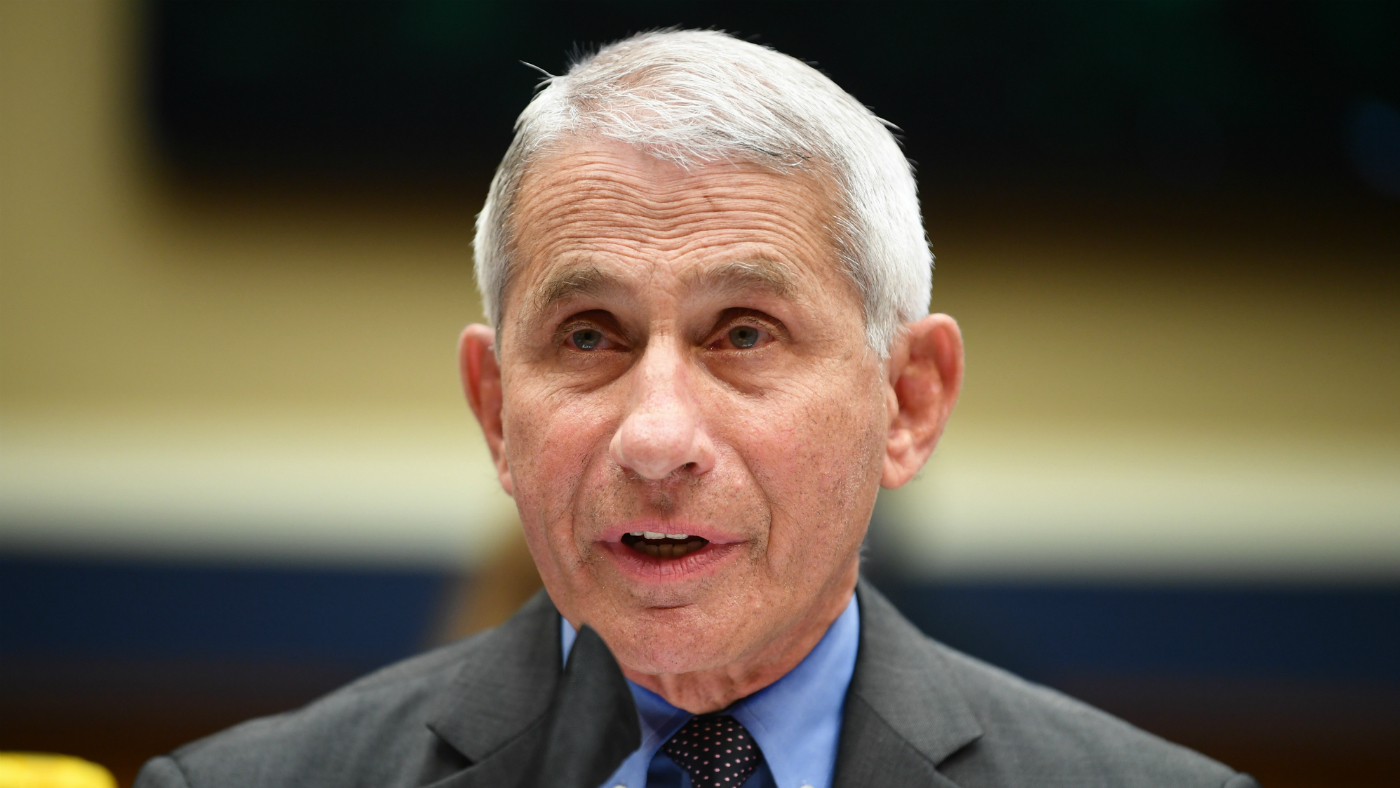Why the UK was faster than US is race to approve Pfizer vaccine
Anthony Fauci apologises after suggesting Britain’s regulator ‘rushed’ process of assessing Covid jab

A free daily email with the biggest news stories of the day – and the best features from TheWeek.com
You are now subscribed
Your newsletter sign-up was successful
America’s top infectious diseases expert has apologised after apparently criticising the speed with which the UK approved the Pfizer vaccine to become the world’s first country to green-light the Covid immunity jab.
Dr Anthony Fauci, who heads the US National Institute of Allergy and Infectious Diseases, told CBS News yesterday that Britain’s Medicines and Healthcare products Regulatory Agency (MHRA) had “really rushed through that approval”.
“I do have great faith in both the scientific community and the regulatory community in the UK,” Fauci continued. “I have a great deal of confidence in what the UK does both scientifically and from a regulatory standpoint.”
The Week
Escape your echo chamber. Get the facts behind the news, plus analysis from multiple perspectives.

Sign up for The Week's Free Newsletters
From our morning news briefing to a weekly Good News Newsletter, get the best of The Week delivered directly to your inbox.
From our morning news briefing to a weekly Good News Newsletter, get the best of The Week delivered directly to your inbox.
The US medical chief held out the olive branch after the MHRA issued a statement insisting that it “rigorously assessed the data in the shortest time possible, without compromising the thoroughness of our review”.
The medicines regulator - which formally approved the Pfizer/BioNTech-developed jab on Wednesday - said its experts had reviewed preliminary data on the vaccine trials dating back to June and had been running a “rolling review” since October, helping to speed up the process.
The race to roll out a vaccine has generated “an extraordinary bout of global sniping”, with critics in both the US and European “taking aim at the MHRA for the speed with which it granted the vaccine an emergency authorisation”, The Times reports.
Experts say that the differences in approval timescales is down to “the US, EU and UK regulators [having] different styles”, the paper continues.
A free daily email with the biggest news stories of the day – and the best features from TheWeek.com
“While the Americans rerun the safety and efficacy analyses performed by drugmakers, the EU and UK check the analyses, which can be quicker.”
Fauci claims another reason for the US lagging behind is the strength of the opposition from anti-vaccination activists in the country. He told CBS: “If we had jumped over the hurdle here quickly and inappropriately to gain an extra week or a week and a half, I think that the credibility of our regulatory process would have been damaged.”
-
 6 of the world’s most accessible destinations
6 of the world’s most accessible destinationsThe Week Recommends Experience all of Berlin, Singapore and Sydney
-
 How the FCC’s ‘equal time’ rule works
How the FCC’s ‘equal time’ rule worksIn the Spotlight The law is at the heart of the Colbert-CBS conflict
-
 What is the endgame in the DHS shutdown?
What is the endgame in the DHS shutdown?Today’s Big Question Democrats want to rein in ICE’s immigration crackdown
-
 A Nipah virus outbreak in India has brought back Covid-era surveillance
A Nipah virus outbreak in India has brought back Covid-era surveillanceUnder the radar The disease can spread through animals and humans
-
 Covid-19 mRNA vaccines could help fight cancer
Covid-19 mRNA vaccines could help fight cancerUnder the radar They boost the immune system
-
 The new Stratus Covid strain – and why it’s on the rise
The new Stratus Covid strain – and why it’s on the riseThe Explainer ‘No evidence’ new variant is more dangerous or that vaccines won’t work against it, say UK health experts
-
 RFK Jr. vaccine panel advises restricting MMRV shot
RFK Jr. vaccine panel advises restricting MMRV shotSpeed Read The committee voted to restrict access to a childhood vaccine against chickenpox
-
 RFK Jr. scraps Covid shots for pregnant women, kids
RFK Jr. scraps Covid shots for pregnant women, kidsSpeed Read The Health Secretary announced a policy change without informing CDC officials
-
 New FDA chiefs limit Covid-19 shots to elderly, sick
New FDA chiefs limit Covid-19 shots to elderly, sickspeed read The FDA set stricter approval standards for booster shots
-
 RFK Jr.: A new plan for sabotaging vaccines
RFK Jr.: A new plan for sabotaging vaccinesFeature The Health Secretary announced changes to vaccine testing and asks Americans to 'do your own research'
-
 Five years on: How Covid changed everything
Five years on: How Covid changed everythingFeature We seem to have collectively forgotten Covid’s horrors, but they have completely reshaped politics